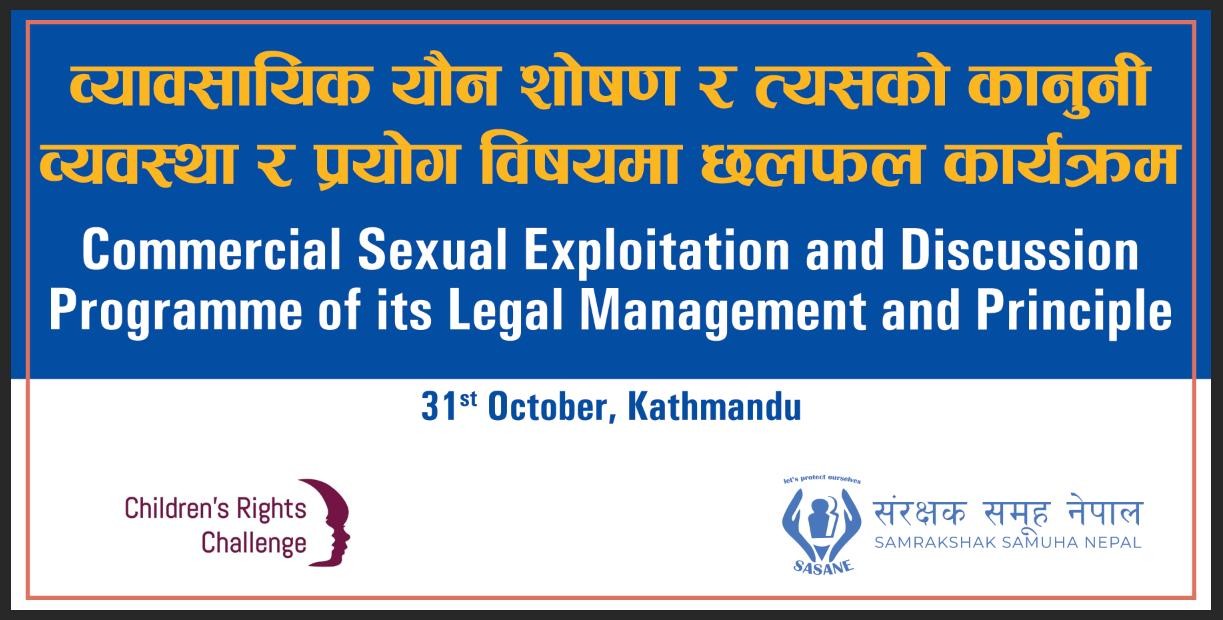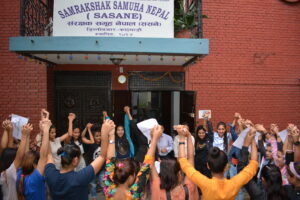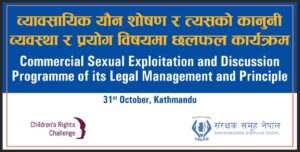
Ignored Victims: Survivors of Commercial Sexual Exploitation (CSE) Struggle for Justice
The issues of Commercial Sexual Exploitation (CSE) requires a comprehensive understanding of the legal frameworks and policies in Nepal as well as around the world. However, the absence of a clear and precise definition of CSE in Nepal has posed a significant challenge for law enforcement, legal professionals and social organizations.
The lack of clarity in defining CSE has created challenges in filing cases and ensuring justice to the victims of such exploitation. Legal proceedings are complicated by the fact that CSE does not precisely fit within the definitions of rape or sexual abuse. For instance, although the case is of long-term sexual exploitation, the FIRs are often filed under rape and the culprit is penalized as per the rape law, which does not morally provide justice to the victim. Due to the ambiguous definition and law, Nepali girls in rural areas who have fallen victims of CSE are particularly affected as they struggle to seek legal solution.
Research and cases examined by Samrakshak Samuha Nepal (SASANE) reveal that adolescent girls from financially disadvantaged families, residing in rural areas and illiterate or school drop-out are most likely the victims of CSE. Furthermore, individuals who migrate to city from rural communities for employment opportunities but lack social support networks or stable living arrangements often fall in the pitfall of CSE. This highlights the intersection of socioeconomic factors and vulnerability to exploitation, emphasizing the need for targeted intervention and support mechanism to protect vulnerable populations from exploitation and abuse.
Commercial Sexual Exploitation is a grave crime and because of the complex nature of CSE, which includes a various forms of exploitation such as child exploitation, prostitution, forced labor and trafficking, it requires a clear well-defined legal framework to effectively tackle the issue. However, government currently lacks a comprehensive and specific law addressing such exploitation. In response, SASANE submitted a proposal urging the formulation of legislation specifically targeting CSE.
In the same vein, a discussion was held recently between officials from Nepal Police, representatives from the District Attorney’s office, as well as the Appellate, Supreme Court, and Nepal Bar Association lawyers, along with the members of SASANE. The discussion stressed on the urgent requirement for a clear definition of CSE and the formulation of robust policies to address this issue effectively.
One of the major objectives of the discussion was to identify gaps in the existing legal provisions and explore effective litigation that addresses the challenges faced by victims of CSE and tackles this crime effectively. SASANE highlighted this issue in the Supreme Court after the discussion. As a result, a significant milestone was the formal filing of a writ in the Supreme Court on November 8, 2023. The writ was registered against Government of Nepal including Office of the Prime Minister and Council of Ministers, Ministry of Federal Affairs and General Administration, Ministry of Home Affairs and Ministry of Law, Justice and Parliamentary Affairs. The case, is in show cause notice period at the moment, which was issued by the judge on December 14, 2023.
In this ongoing effort, SASANE has been doing further research and collecting supporting cases and documents for the issue.


